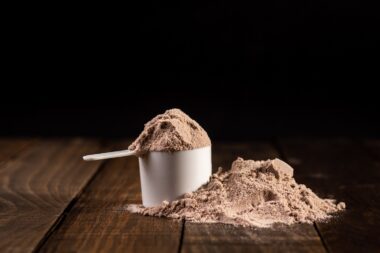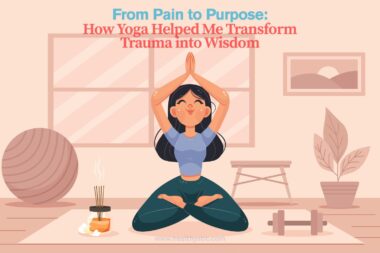In a world marked by progress and innovation, the question of the secret to a long and healthy life remains one of the most fascinating mysteries. With each passing day, we gain new insights into how our lifestyle, diet, and stress management not only influence our lifespan but also our quality of life.
Modern science has allowed us to delve deeper into the mysteries of longevity, and what we’ve discovered is both inspiring and empowering. From the blue zones of the world, where people live longer than elsewhere, to the latest breakthroughs in genetic research shedding light on the biological mechanisms of aging – the quest for longevity has opened up a wealth of knowledge and possibilities that are revolutionizing our understanding of health and well-being.
Understanding the Basics of Longevity
The concept of longevity extends far beyond merely extending lifespan. It encompasses a combination of a healthy, active body and an alert, content mind. Researchers have identified various factors that contribute to longevity, from genetic predispositions to environmental and lifestyle factors.
A balanced diet, regular physical activity, mental stimulation, and a strong social network are just a few of the key elements that can positively impact our longevity. Yet, the crucial factor often lies in the harmony between body and mind and the ability to lead a fulfilled and meaningful life.
“Longevity is not just a product of genes but also of the daily choices we make.”
This statement succinctly captures the essence of longevity. While our genetic makeup undoubtedly plays a role, a significant part of our lifespan is in our own hands. The decisions we make every day – from what we eat to how often we exercise and how we manage stress – have a profound impact on our health and lifespan. It’s empowering to know that through conscious lifestyle choices, we can actively contribute to our own longevity.
Diet and Longevity
The link between diet and longevity has been known for centuries and is further supported by modern scientific research. A nutrient-rich, balanced diet can reduce the risk of chronic diseases and contribute to a longer, healthier life.
Foods high in antioxidants, healthy fats, vitamins, and minerals play a central role in the diet of people living in the so-called blue zones – areas with an unusually high concentration of centenarians.
- Important Nutrients and Vitamins: Omega-3 fatty acids found in fatty fish and flaxseed promote heart health. Antioxidants, present in berries and dark leafy greens, combat free radicals and can slow the aging process. Vitamins like Vitamin D, obtained through sunlight and certain foods like eggs and fatty fish, support the immune system and bone health.
- Examples of Longevity-Promoting Foods: Superfoods often associated with longevity include green tea, known for its anti-inflammatory properties, and turmeric, a spice with powerful antioxidant effects. Fermented foods like yogurt and kimchi promote a healthy gut flora, which is crucial for the immune system and overall health. It’s no secret that a diet rich in whole foods, vegetables, and fruits lays the foundation for a long and healthy life.
It’s fascinating to see how science and technology unite to unveil the secrets of longevity. A standout example is the innovative platform https://www.moleqlar.com, dedicated to exploring and applying molecular sciences to improve quality of life and extend lifespan. This approach reflects the growing importance of integrating scientific insights into our daily lives to achieve a healthier and more prolonged life.
Physical Activity and Its Impact
The importance of physical activity in promoting longevity cannot be overstated. Regular exercise strengthens the heart, improves circulation, aids in weight control, and reduces stress, all of which can contribute to increased life expectancy. It’s not necessary to be an extreme athlete to enjoy the benefits of physical activity.
Moderate, regular exercise, such as brisk walking, swimming, or yoga, can have significant positive effects on health and well-being.
- The Best Types of Exercise for Different Age Groups: For young adults, a combination of strength training and aerobic exercises might be ideal for improving fitness and maintaining muscle mass. For older adults, balance exercises, flexibility training, and moderate aerobic activities are particularly valuable in maintaining mobility and reducing the risk of falls.
- How Regular Exercise Affects Aging: Physical activity has a direct effect on cellular aging. Studies have shown that regular exercise can keep the telomeres, the protective caps at the ends of chromosomes, longer, indicating a slower biological aging process.
Mental Health and Emotional Well-being
An often overlooked aspect of longevity is mental and emotional health. Stress, anxiety, and depression can not only impair quality of life but also have direct effects on physical health.
Stress management strategies, such as meditation, mindfulness practices, and maintaining social connections, can improve emotional well-being and thereby contribute to a longer life.
- Stress Reduction Techniques: Simple techniques like deep breathing exercises, progressive muscle relaxation, and regular breaks during the workday can help lower stress levels and improve mental clarity.
- The Link Between Mental Well-being and Lifespan: Research has shown that people with a high level of mental well-being often have a higher life expectancy. This underscores the importance of mental health care, similar to the attention we give to physical health.
The Role of Medical Science
Advancements in medical science and technology have opened new avenues to promote longevity and improve quality of life in old age. From preventive measures like vaccinations and health screenings to revolutionary treatments for chronic conditions – medical science plays a crucial role in extending our lifespan and enhancing our years of life.
- Recent Breakthroughs in Longevity Research: Genetic research and regenerative medicine are opening new pathways to understand and influence the mechanisms of aging. Innovative therapies aimed at extending telomeres or improving cell function could radically change the way we age in the near future.
- How Preventive Medicine Contributes to Longevity: Early detection and treatment of health issues can prevent the development of serious diseases and significantly extend lifespan. Preventive measures, including healthy lifestyle choices and regular medical check-ups, are key components for a long and healthy life.
Conclusion: Longevity as an Integrative Approach
The journey to longevity is multidimensional and requires an integrative approach that considers diet, physical activity, mental health, and medical innovations. It’s not just about how long we live, but also about how well we live. The combination of a healthy lifestyle, promoting mental well-being, and leveraging scientific advancements offers us the best chance for a long, fulfilled, and healthy life.
Image Credit: Freepik
This article is published by our independent team of health and wellness pundits that publish original and informative content to empower readers to take charge of their health and embark on a physically, mentally, and emotionally balanced lifestyle.





































